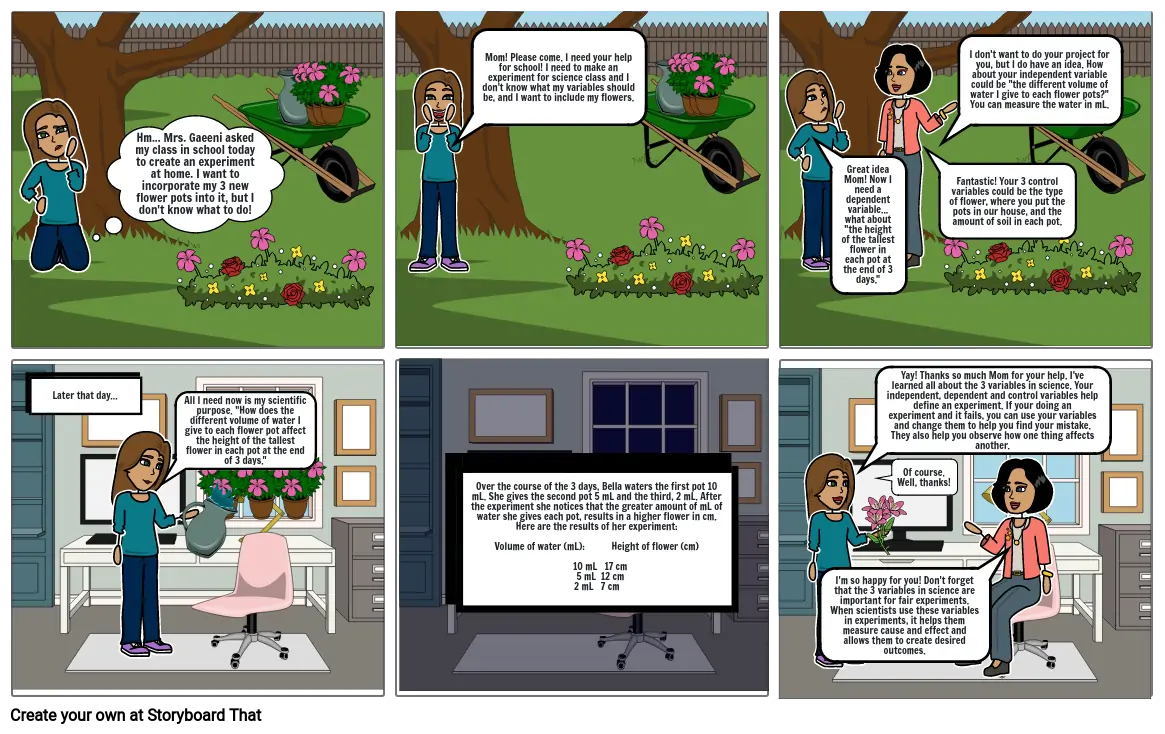SCIENCE COMIC VARIABLE ASSIGNMENT - Emily Waks

Storyboard Text
- Hm... Mrs. Gaeeni asked my class in school today to create an experiment at home. I want to incorporate my 3 new flower pots into it, but I don't know what to do!
- Mom! Please come. I need your help for school! I need to make an experiment for science class and I don't know what my variables should be, and I want to include my flowers.
- Great idea Mom! Now I need a dependent variable... what about "the height of the tallest flower in each pot at the end of 3 days."
- Fantastic! Your 3 control variables could be the type of flower, where you put the pots in our house, and the amount of soil in each pot.
- I don't want to do your project for you, but I do have an idea. How about your independent variable could be "the different volume of water I give to each flower pots?" You can measure the water in mL.
- Later that day...
- All I need now is my scientific purpose. "How does the different volume of water I give to each flower pot affect the height of the tallest flower in each pot at the end of 3 days."
- Over the course of the 3 days, Bella waters the first pot 10 mL. She gives the second pot 5 mL and the third, 2 mL. After the experiment she notices that the greater amount of mL of water she gives each pot, results in a higher flower in cm. Here are the results of her experiment:Volume of water (mL): Height of flower (cm) 10 mL 17 cm 5 mL 12 cm 2 mL 7 cm
- I'm so happy for you! Don't forget that the 3 variables in science are important for fair experiments. When scientists use these variables in experiments, it helps them measure cause and effect and allows them to create desired outcomes.
- Yay! Thanks so much Mom for your help. I've learned all about the 3 variables in science. Your independent, dependent and control variables help define an experiment. If your doing an experiment and it fails, you can use your variables and change them to help you find your mistake. They also help you observe how one thing affects another.
- Of course. Well, thanks!
Over 30 Million Storyboards Created

